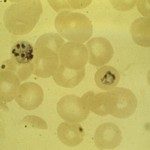Link to Pubmed [PMID] – 33992907
Link to HAL – hal-03372683
Link to DOI – 10.1016/j.coi.2021.04.006
Current Opinion in Immunology, 2021, 72, pp.116-125. ⟨10.1016/j.coi.2021.04.006⟩
Population genetic studies have clearly indicated that immunity and host defense are among the functions most frequently subject to natural selection, and increased our understanding of the biological relevance of the corresponding genes and their contribution to variable immune traits and diseases. Herein, we will focus on some recently studied forms of human adaptation to infectious agents, including hybridization with now-extinct hominins, such as Neanderthals and Denisovans, and admixture between modern human populations. These studies, which are partly enabled by the technological advances in the sequencing of DNA from ancient remains, provide new insight into the sources of immune response variation in contemporary humans, such as the recently reported link between Neanderthal heritage and susceptibility to severe COVID-19 disease. Furthermore, ancient DNA analyses, in both humans and pathogens, allow to measure the action of natural selection on immune genes across time and to reconstruct the impact of past epidemics on the evolution of human immunity.



